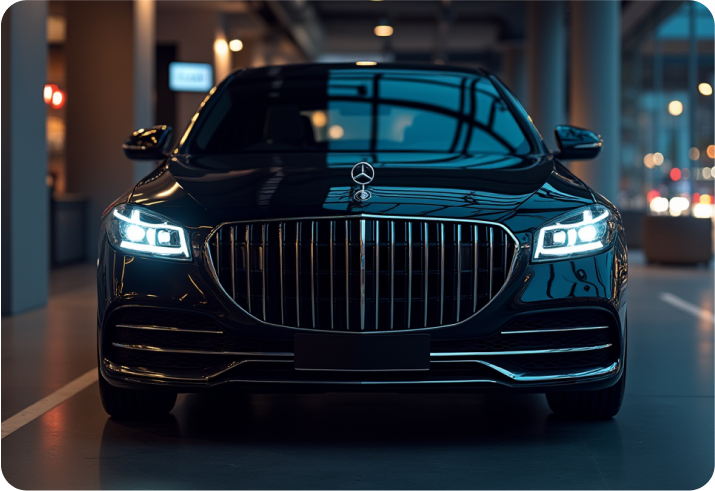Fuel Cell Cars - Challenges and Benefits

Conventional vehicles that run on fuels like gasoline, diesel, and the like have the potential to generate harmful gases and pollutants in the air. Keeping this in mind, there have been several alternative fuel options and vehicles that can emit fewer of these harmful gases and not impact the climate as much. Thus,fuel cell cars that use hydrogen as their power source are one of those alternatives that have come into the picture. These cars only give out heat and water and no greenhouse gases like carbon dioxide are emitted by general and conventional vehicles. ABE is a place where you can find all the types of cars of different brands. These hydrogen fuel cars have their own sets of challenges and benefits, like any conventional and alternative vehicle that has been listed below.
Fuel cell cars meaning
A fuel cell vehicle, or FCV, is a type of electric car that uses fuel cells to work rather than oil or other fuels like gasoline or diesel. They generate electricity with the help of oxygen and hydrogen. A fuel cell car makes use of hydrogen as its propulsion agent. They are more effective than conventional cars because they do not produce any tailpipe emissions. Similar to how an electric car works, fuel cell cars will store energy through hydrogen that is converted into electricity by the fuel cells. They have three parts called the electrolyte, cathode, and anode. The fuel cell works just like a battery, generating electricity, and instead of having it recharged, it gets refilled with hydrogen. There are different fuel cells one can find, such as polymer electrolyte membrane fuel cells, reformed methanol fuel cells, direct methanol fuel cells, etc.
Also Read: A Buyer's Guide to Used Electric Cars
Challenges
1. Vehicle Price
Fuel cell cars are more expensive than conventional and other alternative vehicles. This is because the production cost of hydrogen cars is quite high compared to other cars. The vehicle cost for these hydrogen cars will need to be reduced in order to compete with other conventional and hybrid vehicles. However, there is a reduction in the cost of fuel cell cars, and this has the potential to go up in the future.
Also Read: An Introduction to Hydrogen Fuel Cell
2. Getting Hydrogen to Consumers
The production of hydrogen at the rate required is not sufficient enough to generate it and distribute it through enough network systems. The infrastructure is also undergoing initial changes, and policy changes are required for efficiency.
3. Durability and dependability of fuel cells
Another one of the fuel cell car challenges is the factor of the durability of the fuel cell. This is because of changes in temperature and humidity. Even though its durability has increased, its overall lifetime needs a push compared to other vehicles.
4. Public Education
One of the most important factors when it comes to such hydrogen fuel cell cars is that the general public must have enough knowledge about their benefits and features. Any consumer will have concerns about durability and safety, and with newer technologies being introduced, uncanniness must be alleviated.
Benefits
1. Less Greenhouse Gas Emissions
Fuel cell cars are way better at reducing greenhouse gas emissions such as carbon dioxide that contribute to global warming at an alarming rate. Since these hydrogen cars do not emit any of these greenhouse gases, they contribute less to climate change. Although producing hydrogen for these cars can emit greenhouse gases, they are significantly less than any conventional vehicle might emit.
2. Reduces reliance on oil
Hydrogen fuel cell cars do not use fossil fuels since they work on hydrogen that can be retrieved from domestic sources. It is mainly generated from renewable sources and makes the car less dependent on oil.
3. Reduces Air Pollution
Since they do not have tailpipe emissions, they contribute to no air pollutants such as smog and other greenhouse gases. They run on hydrogen with no harmful impact on the air. The production of fossil fuels also generates fewer pollutants than any general vehicle.
FAQs
1. What are the benefits of fuel cell vehicles?
Fuel cell vehicles generate fewer greenhouse gases and reduce air pollution because they do not emit harmful pollutants. They also do not use on fuel sources like oil.
2. Are fuel cell cars good for the environment?
Fuel cell cars emit significantly lesser amounts of greenhouse gases than any conventional car. They also mainly work on domestic sources, through which hydrogen for these cars is derived. They also emit no harmful pollutants that pollute the air, which makes these cars good for the environment.
3. Are fuel cell cars good?
Fuel cell electric cars do not have tailpipe emissions since they are powered by hydrogen. They only generate the water vapour and warm air and are far safer for the environment than conventional vehicles. This makes them a better option than conventional vehicles.
Read More Post:
1. How to Handle an Overheated Car Engine?
2. Low Engine Oil Causes and Symptoms
3. Nitrogen vs Air In Tyres – Why Nitrogen in Tyres
 By Admin
By Admin









